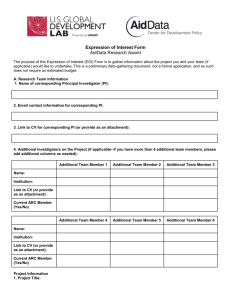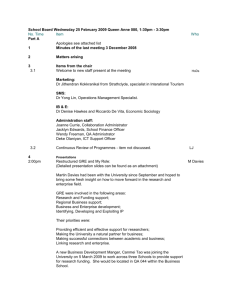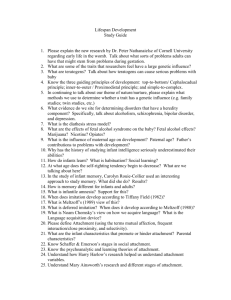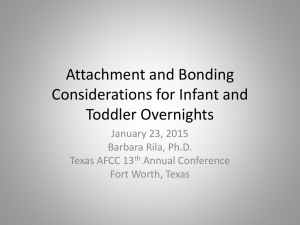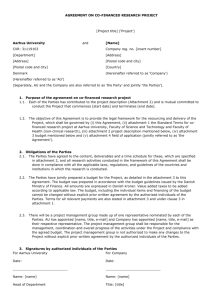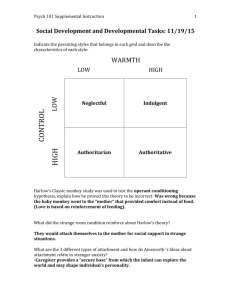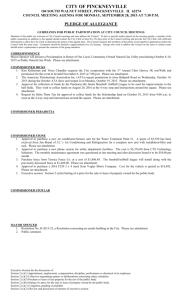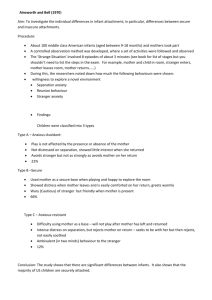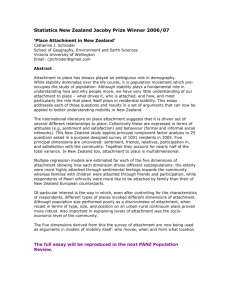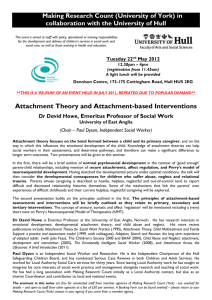Evaluation of learning theory
advertisement
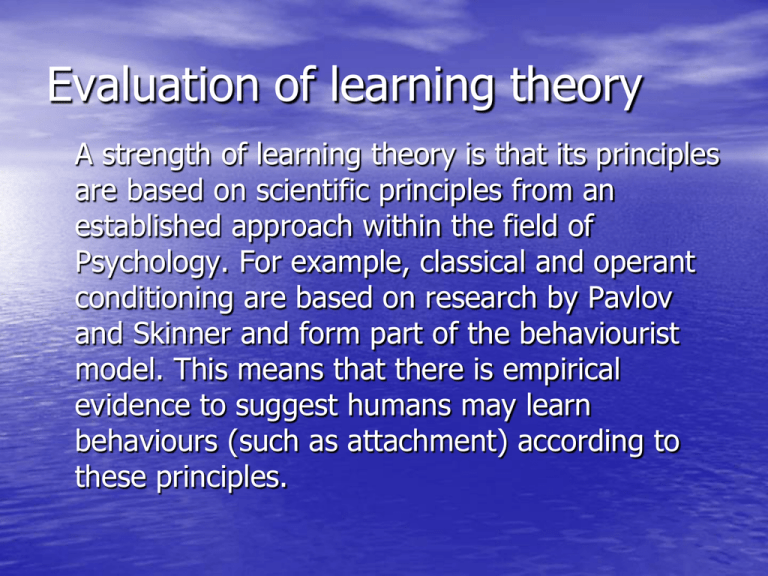
Evaluation of learning theory A strength of learning theory is that its principles are based on scientific principles from an established approach within the field of Psychology. For example, classical and operant conditioning are based on research by Pavlov and Skinner and form part of the behaviourist model. This means that there is empirical evidence to suggest humans may learn behaviours (such as attachment) according to these principles. Evaluation of learning theory One weakness of the learning theory of attachment is that it is a reductionist explanation. For example, it ‘reduces’ (breaks down) the complex behaviour of attachment to very simple components such as stimulusresponse or reinforcement. Whilst learned experiences may influence attachment, reducing attachment to a single component means that learning theory largely ignores all the other influences on our attachments such as innate drives (Bowlby) and a child’s temperament. Task: Write 3 of your own evaluation paragraphs (using the PEE structure) • A problem with the learning theory is that research suggests that infants don’t always attach through the provision of food and may prefer comfort. For example, Harlow (1959) found… • Furthermore, another limitation of learning theory is that it is based on studies with non-human animals. For example… • A final weakness of the learning theory of attachment is that research does not support the idea that infants learn to attach to the one person that feeds them The mother). For example, Schaffer and Emerson found… Compare and contrast theories of attachment • Evolutionary • Learning Exam focus Outline how psychologists have studied attachment. (4 marks) Outline what research into attachment has shown. (6 marks) Explain one limitation of the evolutionary explanation of attachment. (3 marks)
